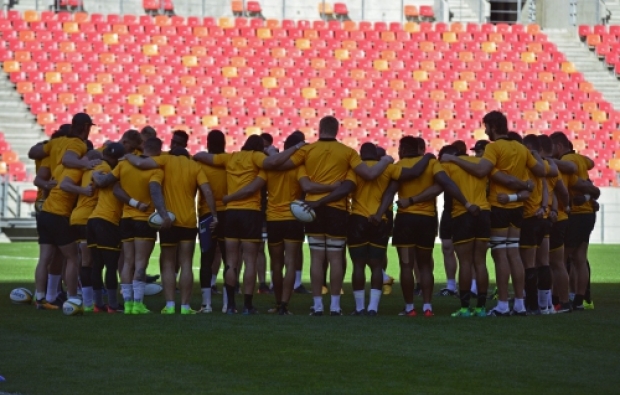MyPlayers CEO Eugene Henning says a contentious 21-day contract escape clause has to be viewed in the context of the SA rugby industry’s greatest priority, which was to reduce costs. CRAIG LEWIS reports.
READ: Salary ‘reductions’ under way from May onwards
As one of the terms in an extensive joint-rescue plan to tackle the Covid-19 crisis, the industry collective agreement on salary reductions included a unique 21-day window allowing for players to cancel their current contracts with immediate effect.
The South African rugby industry is the only one to include an immediate escape clause in its collective response to the Covid-19 pandemic, with the termination window running from 24 April to 14 May.
It’s an element of the overall industry agreement that was believed to have been proposed during meetings with the player agents, and although there was initially a request for a 60-day window, the concession was ultimately settled for a 21-day period.
The industry’s decision to include this term in a collective agreement was unusual, but Henning told SARugbymag.co.za that without it, players would have been left to fend for themselves individually, which could have put them in a worse labour position.
However, it has also led to some unhappiness at franchise level, where nervous employers are currently waiting to see which of their players might consider to exercise the exit clause should they so choose and have the option to do so.
ALSO READ: D-Day looms for sought-after SA players
It’s no secret that World Rugby Player of the Year Pieter-Steph du Toit has drawn big interest from more than one overseas club, while other World Cup winners such as Makazole Mapimpi and Lukhanyo Am are also known to have received interest.
Henning acknowledged the risks associated with the escape clause, particularly when it came to high-profile players, but added that the bigger picture had to be seen.
‘There is no one that can hide from the pandemic. The overseas markets have also gone under significant financial setbacks of their own, so I can’t see overseas clubs in the landscape of enforcing pay cuts then looking to recruit players.
‘However, I think where the risk may come in is for our top marquee players, say the top five to 15, and we could risk losing them. But the purpose of the exercise is to reduce our cost base, it is not to retain our marquee players – you can’t do the two together. You can’t expect to reduce our costs at all costs, and also want to retain the top players; those two concepts are mutually exclusive. I don’t think it’s a big risk, but where the small risk comes in is in relation to the marquee players.’
A particularly contentious element of the exit clause has been the stipulation that disallows the franchises from entering into negotiations or counter-offers during this ‘open window’.
However, Henning explained that the overriding purpose of the negotiations was to reduce expenditure, and that they couldn’t afford for there to be a situation where select players were exempt from salary reductions or received counter-offers or other perks in order to prevent them from heading overseas.
‘There was really only one purpose of all the weeks of negotiation, and that was to make sure the industry’s cost base was reduced enough to get past this crisis if we don’t play rugby again this year. We can’t achieve that objective if we have exemptions, then you’ll find that you’re not really saving and achieving what you want to.
‘We had a cost-saving number in mind that we wanted to achieve, and we had to be all in it together to get there. Everyone has to be treated the same. You couldn’t make an exception for a small group.’





